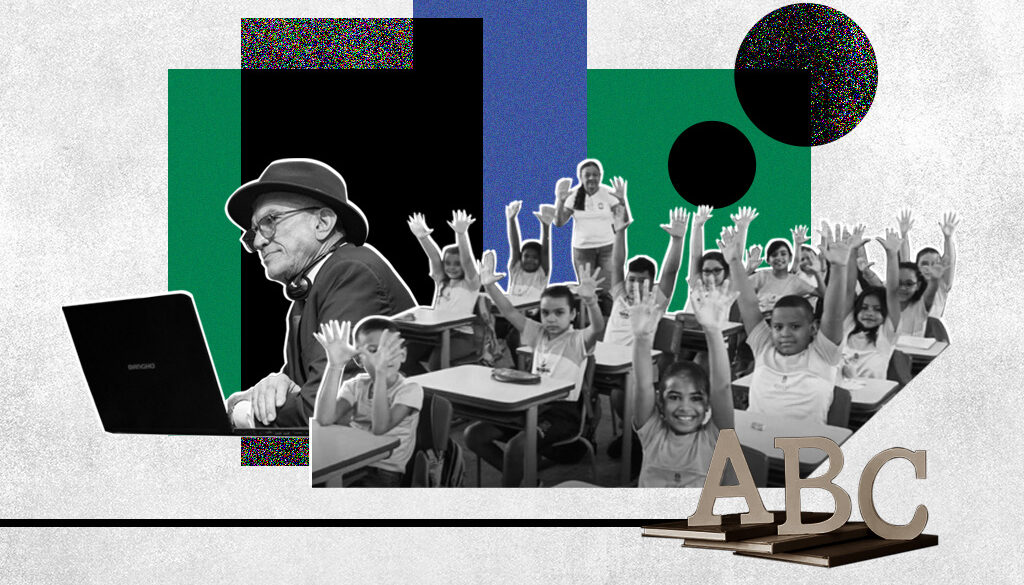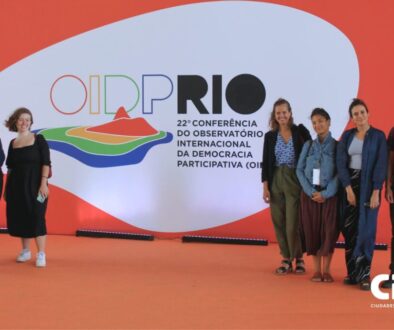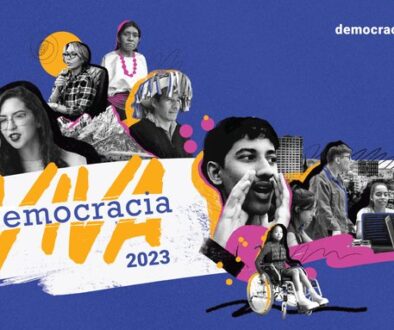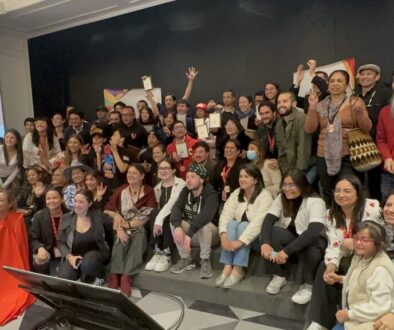A city in Brazil has achieved 100% literacy in public education and has become a global reference
Getting your Trinity Audio player ready... |
Sobral, in the state of Ceará, one of Brazil’s poorest, has achieved an educational revolution. In 2000, half of the students there were eight years old when they did not understand what they were reading, but today that percentage has been reduced to zero. The focus was on teacher training, rigorous evaluations of educational quality and creating a healthy school environment for learning. Last June, Veveu Arruda, former mayor of the city and promoter of this initiative, was in Buenos Aires to demonstrate that with political determination, quality education is possible. “I think that Argentina has a past that can teach the present to build the future of the longed-for education policy it deserves,” he said during his visit.
“We overcame the myth that poverty prevents learning; we don’t have to wait for all the social indicators to improve for public schools to work,” said José Clodoveu de Arruda Coelho Neto, better known as Veveu Arruda, on June 21 in Buenos Aires, in a conversation organized by the Organization of Ibero-American States for Education, Science and Culture (OEI) and the Natura Institute (Argentina).
Arruda is passionate about education, a man of action whose WhatsApp profile reads carpe diem (‘seize the day’, in Latin). A teacher and lawyer, since 1993 he held the positions of councilor, municipal secretary, deputy mayor and mayor of Sobral (2011-2017), a municipality in northeastern Brazil with almost 211,000 inhabitants. It was during his administration and under his impulse that various policies were implemented that strengthened public education.
The town, home to more than 30,000 children, experienced in the first years of the century a revolution in elementary school and the first stage of secondary school. As a result of a firm political decision, through concrete measures and emphasis on the quality of education, it became a model for literacy.
Educational changes in Sobral were drastic: in 2000, only 49% of students finishing second grade at age 7 were literate; by 2004, this percentage had risen to 92%. Between 2005 and 2015, the city went from 1,336th to 1st place in the Basic Education Development Index (IDEB), Brazil’s national test.
Because of results like these, its mechanism was a model for the entire state of Ceará, one of the most vulnerable in Brazil. Today his strategy is applied in 17 of the country’s 26 states and in more than 3,000 municipalities. Sobral’s educational approach also inspires the entire continent.
The Model
This approach to strengthening Sobral’s public education was based on the joint work of various stakeholders and the implementation of long-term measures.
One of the main initiatives was the implementation of the Literacy at the Right Age Program, which aims to ensure that all students are literate by the end of the second year of primary school. Its pillars were a commitment to quality, continuous evaluation and monitoring, infrastructure and resources, a full timetable and community participation. These guidelines, coupled with strong educational leadership and a sustained commitment to continuous improvement, created environments more conducive to meaningful learning.
Unpacking these measures, one can see how instead of focusing solely on the number of students passing the grade level, Sobral focused on improving the quality of education. Programs were implemented to train and motivate teachers, and ensure that they were highly qualified and committed to teaching at a high level.
A rigorous evaluation system was also established to measure student and school performance. This made it possible to identify areas for improvement and provide additional support to students who needed it. In addition, monitoring strategies were implemented to ensure that students were achieving educational objectives.
Sobral also invested in improving school infrastructure and providing educational resources. As Arruda explained during his recent visit to Buenos Aires, the structural changes consisted of “everything money can buy”: construction and renovation of schools, equipment, computers, school meals, school transportation, uniforms and supplies. The first public competition for teachers also took place.
In addition, the full-time program was implemented in all municipal schools, which allowed students to extend their learning hours. In addition to the basic subjects, extracurricular activities, sports and arts were included, providing a more comprehensive education.
In addition, the active participation of the community in the educational process was encouraged. Alliances were established with local organizations, businesses and families, which promoted co-responsibility in education, where students, parents, teachers and principals assume an active role and share learning and responsibilities. Last May, for example, a course on Restorative Justice and Culture of Peace was given, aimed at peace-building circles in schools.
Moreover, for the Sobral model, it is important to ensure that all teaching hours are completed. “At Sobral, at the beginning of the school year, the school director visits the classrooms every day to find out who was absent and thus help the child not to be absent. If the family does not have a telephone, a school employee goes to the homes to talk about the importance of the children’s daily presence,” Arruda says. “As mayor, I also called the schools and then the homes of some families asking why their daughter or son was missing class. This is how we demonstrate the priority we give to the presence of each and every child. These actions have a positive impact on schools, families and the community. A simple gesture by a principal or a mayor has the symbolic force of their example and presence for the learning management dynamics of all students,” says Arruda.
Based on all of the above, the model can be summarized in four questions that are always asked in Sobral’s schools: 1. Are all the children in school; are none of them absent? 2. Do they progress from year to year? and 4. Do they all learn effectively?
“Sobral’s case is an inspiration for education systems around the world. There are important lessons to be learned: education must be a political priority for governments; the goal is to improve the right to education. In this case it was to ensure that all children become literate at the expected age: in the first two years of elementary school. These goals must be measured to see if we are achieving our objectives. But goals and evaluation alone are not enough: it is necessary to generate comprehensive policies to support teachers and systematically improve teaching conditions in order to achieve the proposed objectives”.
This is Florencia Mezzadra. She lives in the province of Buenos Aires and is in charge of coordinating the Instituto Natura Argentina, an organization created by Natura Cosméticos to develop its strategy of social investment in education. Among other actions, the Natura Institute in Argentina supports the implementation of policies to strengthen initial literacy and the transformation of secondary schools in six provinces: Entre Ríos, Misiones, Salta, Córdoba, La Rioja and Mendoza. This investment in education is made possible thanks to the sales of products from the “Believe to See” line, where consultants and Natura donate their profits to the cause.
Learning the Model
According to figures from the Anísio Teixeira National Institute of Educational Studies and Research (INEP/School Census 2022), basic education in Brazil has 38.3 million students studying in public schools. And according to the Basic Education Evaluation System (SAEB), in 2021 only one third of children in 2nd grade of primary school could read and write correctly. This shows that they are still facing a major challenge. For this reason, part of Sobral’s approach today includes sharing good practices with other Brazilian states and municipalities.
Applying this approach to literacy in other settings is possible. However, according to Arruda, it is crucial to observe the historical, cultural and political characteristics of each place. The protagonism in the design and implementation of public policy is always local, of those who live and work in that jurisdiction. “What is needed is to exercise a new, transformative and creative protagonism. In Brazil, this experience is inspiring 17 of the 26 states and more than 3,000 municipalities,” he says.
A group of World Bank specialists visited Sobral to evaluate its success story. In their report, they point out that before starting this process, the challenges they faced were no different from those of many developing countries.
Whether in Brazil or anywhere else on the planet, for Arruda, where there is a genuine intention to achieve effective literacy, everything must begin with the political decision to make public education an effective priority, which takes the form of management and pedagogical strategies such as the following:
– Educational leaders and managers assume functions because they have the skills and competencies necessary for their best performance, and not because of partisan political ties.
– Diagnostic, formative and systematic evaluations of learning.
– Ongoing training for teachers and school administrators.
– Production and distribution of didactic material to all students and teachers.
– Implementation of follow-up services and monitoring of activities.
– Creation of an incentive program for teachers and school administrators.
– Communication and mobilization for dialogue and participation.
– Institutionalization (integration and consolidation of specific educational practices within schools and the community).
“These strategies shape educational policy in a systematic and organic way, capable of ensuring the learning of the entire school network and not just of one or another school. And very important: it is a state policy, republican and democratic, independent of partisan politics. These are essential conditions for its sustainability, despite changes of government,” Arruda assures.
Finally, these strategies are implemented in line with four principles: academic excellence in learning; socioeconomic, racial, gender and ethnic equity; integral formation of citizens and students; and attention to socioemotional dimensions.
The model emphasizes the importance of understanding that a school environment conducive to a learning culture needs technical skills and abilities. But it only works well in a space of affectionate and loving coexistence among the members of the school community, with the children in the classroom as the focus and center of the work.
The political decision for education
The paradigm shift in Sobral, which impacted the entire state of Ceará, the whole of Brazil and crossed borders, reveals urgencies that, so obvious, can go unnoticed. For example, that education should generate a sense of urgency in public and private leaders and officials, and a commitment to literacy for all children (at the right age). For Sobral’s model, this is a task that needs everyone; the commitment of the State and society, of the public power, but also of civil society organizations and, especially, of families.
“No public work, no matter how relevant it may be, has a greater impact on people’s lives than education, because it is the irreplaceable guide for their quality of life and for the sustainable development of nations. Transforming schools that today produce illiteracy into schools that effectively teach literacy will also generate political capital, including electoral capital”, explains Arruda in the interview for this article.
From September 2017 to September 2018, Arruda was a visiting researcher at Columbia University NYC, U.S.A. Currently, he is executive director of Associação Bem Comum (ABC), in charge of the Collaborative Literacy Program (PARC) in Brazil, inspired by Sobral’s experience, in partnership with the Lemann Foundation and Instituto Natura. ABC is an educational civil association founded in 2018, which contributes to the development and implementation of policies that promote human development in aspects of education.
From an early age, Arruda understood the importance of reading and writing for the development of humanity to be protagonists of their own life and happiness, from a personal, social and community point of view. “It is inconceivable that today there are illiterate children in schools. Neuroscience leaves no doubt about the need for children to become literate at the age of 7 (when the period of greatest neuronal connections in the human brain ends), in order to ensure their qualified training paths and, consequently, their itinerary with the best conditions for their adult life. And thus contribute to the necessary socioeconomic, cultural and political transformations in the territories where they live, so that we have a world of peace, without so many inequalities and injustices”, he says.
The former mayor of Sobral has always been interested in Argentina’s educational policies: “Sarmiento drove an inspiring educational revolution. Last month in Buenos Aires I noticed a creative restlessness among educational leaders and technicians and directors of non-governmental organizations. I had the privilege of speaking with two teachers who are also union leaders and I had the same perception. I think that Argentina has a past that can teach the present to build the future of the longed-for educational policy it deserves. In Sobral and Ceará, our task was to prevent the future from being trapped in the past. The previous references were not good at all”.
“In Ceará, there is still a need for improvement in terms of rights. But we have managed to recover credibility in public schools. Not so long ago, parents preferred children to learn a trade instead of going to school, because before, they didn’t learn,” Arruda concludes.
This article is part of the Soluciones platform, a partnership between Río Negro and RED/ACCIÓN.
This article was originally published in Red/Acción on July 17, 2023.







